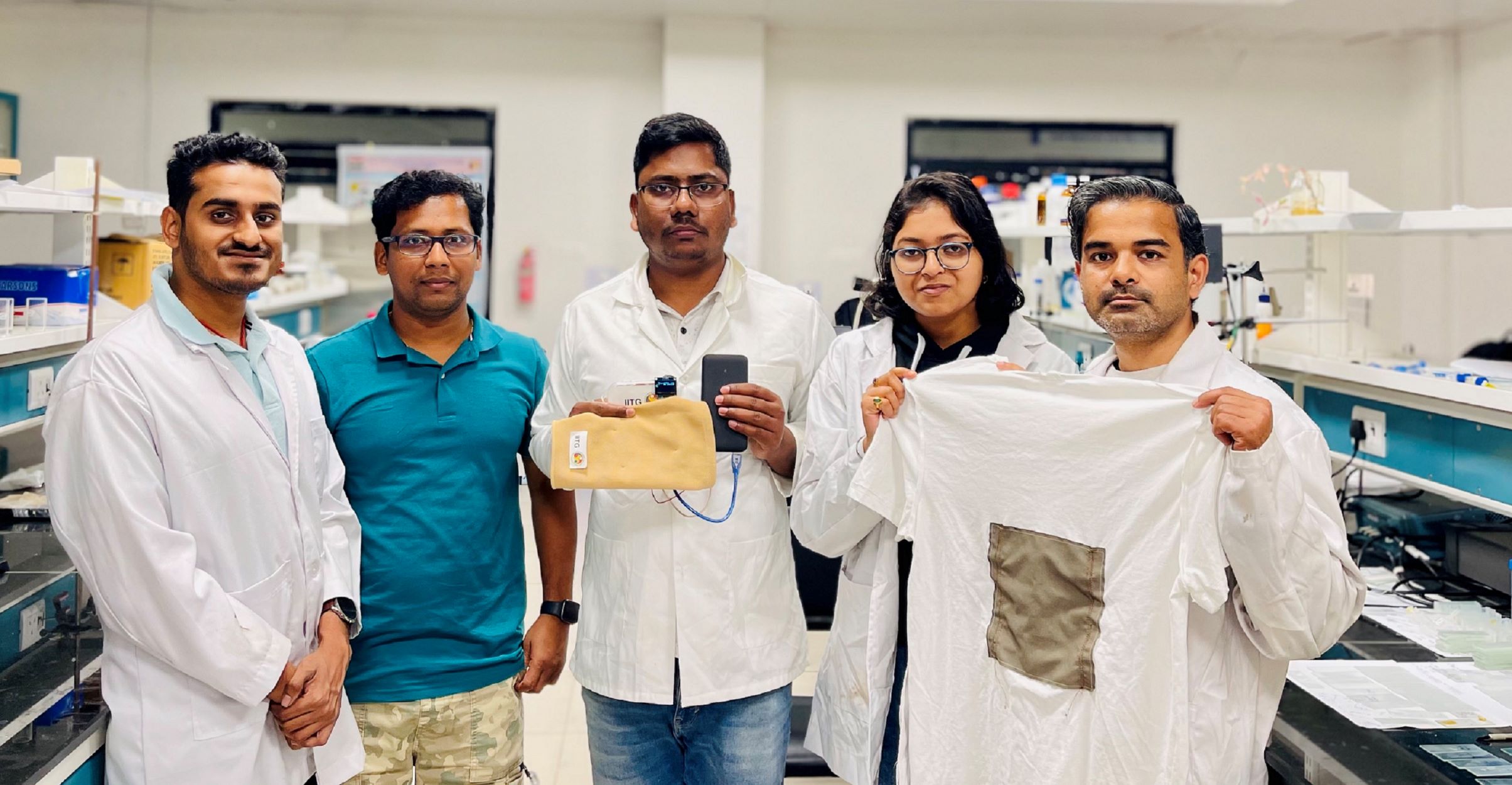IIT Guwahati innovates flexible heating fabric for cold climates to avoid health risks
February 13, 2025 | Thursday | News
The research team has filed an Indian patent on the innovation
Indian Institute of Technology (IIT) Guwahati researchers have developed a water-repellent, conductive textile that converts electricity and sunlight into heat. Designed to keep wearers warm in cold environments, this innovation addresses the serious health risks posed by prolonged exposure to very low temperatures, including hemoconcentration-based arterial blood clotting, breathing difficulties, and weakened immunity.
Extreme cold temperatures can lead to health problems that can even be fatal. Studies indicate that deaths due to extreme cold outnumber those caused by extreme heat.
The textile can convert electricity using a small rechargeable battery or solar energy into heat and can maintain a desired temperature between 40°C and 60°C for over 10 hours.
The researchers tested the textile in wearable knee and elbow bands, demonstrating its potential to provide sustained warmth for individuals working in cold environments and arthritis patients needing localized heat therapy. Additionally, the textile has broader applications, such as on-demand water heating and accelerating chemical reactions by wrapping it around the reaction vessels.
The research team has filed an Indian patent on the innovation and is now working towards integrating the developed material with a miniaturised and appropriate electronic circuit to create viable products. Additionally, the team is seeking industry collaborations to bring the innovation to market for potential dry thermos-therapy applications in the near future.









